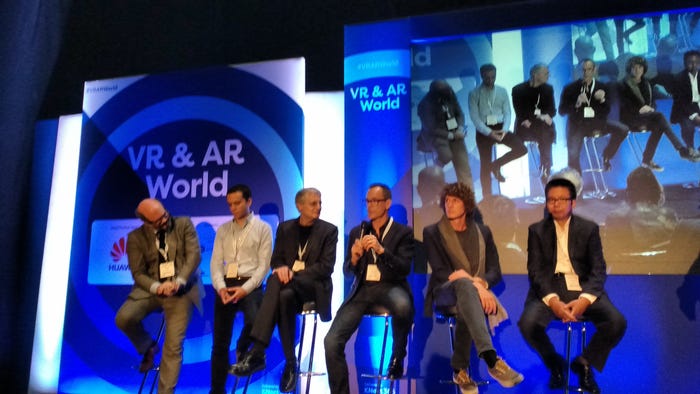The ultimate question - how do you make money out of VR?
We’re a greedy bunch in the tech world. Whenever a new technology comes along there may be questions as to how it can help humanity, but the ultimate questions is how do we make money off it.
October 19, 2016

We’re a greedy bunch in the tech world. Whenever a new technology comes along there may be questions as to how it can help humanity, but the ultimate questions is how do we make money off it.
While it may seem self-serving, the question itself is fair enough, and that was the topic during the opening keynote panel session at VR & AR World this week; how can you commercialize virtual reality and augmented reality technologies.
VR and AR as technologies have often been relegated to the sci-fi discussion boards but 2016 has seen the first steps towards real-world implementation. Pokémon Go was, and to a degree still is, a world-wide phenomenon and while this may seem like a simplistic implementation of the technology it has opened the door.
Huawei’s Richard Li sees the game as a stepping stone which has normalized the technology in the eyes of the mass market. As with any new technology there needs to be a kick-start, and the Pokémon Go craze gave AR a push into the real world. According to Li, the game has given innovators permission to experiment and push the boundaries. The gaming segment has huge potential, one in which there is room for billions, but we’re only at the beginning currently.
For Daniel Doornink, Founder and CEO at VR Base, playing around with the technology is not something which should be taken lightly. Although there are plenty of examples of VR and AR, to date there hasn’t been a hit, a game or experience which has taken the world by storm and marched VR to the front page.

The VR experience is not something which should be an experiment. A business case has to be identified and money has to be spent. VR cannot be half-arsed; the experience has to be absolutely exceptional otherwise you take it straight back to the ground floor and the opinion of the consumer will be lost. Unless an organization is prepared to spend big, making the experience something which is genuinely unique, there is little point in the initial investment.
Another point made by Doornink which was supported by Fundamental VR’s Richard Vincent, is the use case of the technology. VR is expensive to implement, and even more expensive to get right. The technology world is often guilty of innovation for the sake of innovation, but this cannot be the case for virtual reality.
According to Vincent, an effective business case is one which cannot be supported by current technologies and therefore adds value to the organization. Think about a new employee meeting the CEO on their first day, or sending engineers to oil rigs virtually, or allow medical students around the world to watch and learn from live operations. These are business cases which cannot be achieved through today’s technology, and therefore offer more than cosmetic value to the organization.
And what about VR cafes? From Vincent’s perspective there is a business case, but a time sensitive one. VR cafes can help normalize and democratize the technology, but like the internet, the opportunity is limited. Once the price point is viable for the mass market, the opportunity is over and like internet cafes, the small segment will be almost non-existent.
VR cafes also create a social occasion of virtual reality, which is an area targeted by Orange. Mathieu Ducrot, Head of Apps Anticipation and Connected Ecosystem at the telco, highlighted the company is targeting the social arena of VR. For Orange, VR will fundamentally redefine the communications industry; its more than a gimmick or gaming platform, it has the potential to change the way consumer communicate and engage with each other.
But there is still a way before the industry is wowed. According to Randolph Nikutta who leads the innovation team for high end media at Deutsche Telekom, the real fun is still 2-3 years down the line. Standardization needs to come first and the conversations are still in the early days for the moment.
Infrastructure is also an issue, as while the industry may be on the verge of cracking under the flood data currently, once VR takes off the network will be facing a whole new Tsunami. Nikutta doesn’t think the industry needs to panic quite yet, but substantial work needs to be done on the network to make sure it can cope under the strain.
So how do you commercialize VR? You make sure you network is ready, kick-start standardization, pick the right market, identify the business case which is reliant on VR technology and nothing else, and you spend big. Easy ey?
About the Author
You May Also Like


.png?width=300&auto=webp&quality=80&disable=upscale)







.png?width=300&auto=webp&quality=80&disable=upscale)


_1.jpg?width=300&auto=webp&quality=80&disable=upscale)